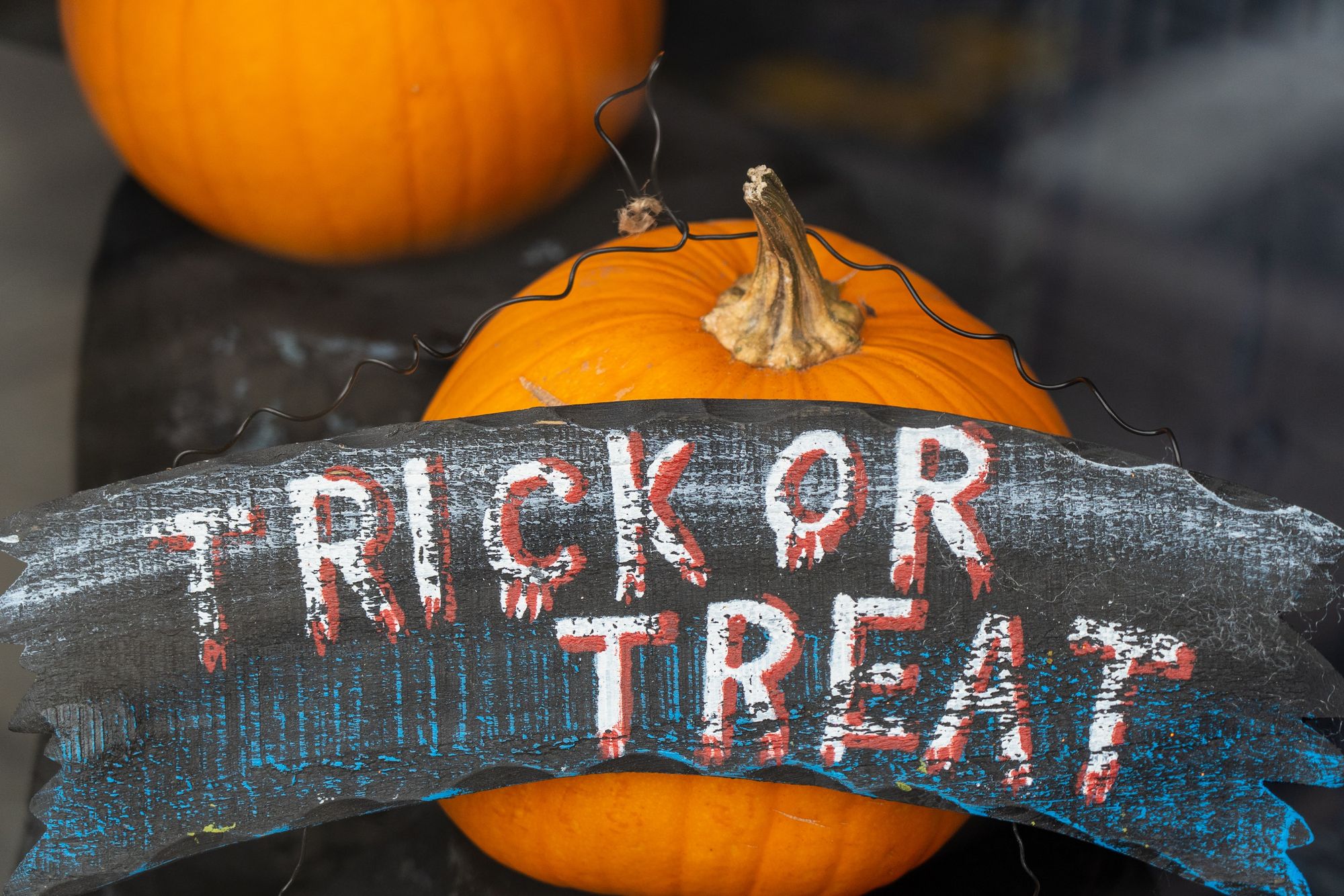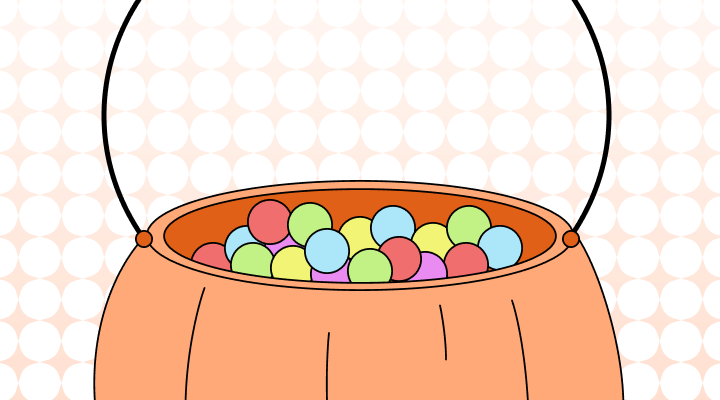Trick-or-treaters refers to the individuals, typically children and sometimes adults, who participate in the Halloween tradition of going door-to-door in costumes and saying "trick or treat" to collect candies and treats from homeowners.
These individuals are the heart and soul of the Halloween custom, and they eagerly anticipate this annual event.

What happens during trick-or-treating?
Trick-or-treaters often spend weeks planning and preparing their costumes, aiming to create spooky, creative, or humorous disguises that reflect their personalities and interests. Once their costumes are ready, they venture out into their neighborhoods on the night of October 31st, carrying bags or buckets to hold their sweet bounty.
The interaction between trick-or-treaters and homeowners is a delightful exchange. When they approach a house, they ring the doorbell or knock, and upon the door opening, they enthusiastically chant, "trick or treat!" In response, homeowners offer a variety of candies, chocolates, and other treats, which the trick or treaters gladly accept and add to their collection.
Why is trick-or-treating such a cherished tradition?
Trick or treat is not just about gathering candy; it's a social activity that brings communities together. Neighbors often enjoy seeing the imaginative costumes and decorating their homes to create a spooky atmosphere. It's also an opportunity for parents or guardians to accompany younger children, ensuring their safety while sharing in the Halloween excitement.
Overall, trick-or-treaters play a central role in making Halloween a fun and memorable holiday filled with creativity, sweets, and a touch of the eerie and mysterious.
Is it trick or treat or trick-or-treat?
Trick or Treat
When written with a space between "trick" and "or" (i.e., "trick or treat"), it is often used as a phrase or statement. For example: "Are you ready for trick or treat?"
Trick-or-Treat
When hyphenated (i.e., "trick-or-treat"), it is often used as a compound adjective to describe the activity itself, or used as a verb. For example: "We're going trick-or-treating tonight."
Helpful hint
Trick-or-treaters must always be hyphenated.
Common idioms/phrases
While "trick-or-treaters" is not a common component of idiomatic expressions, Halloween-related idioms and phrases often involve the concept of trick-or-treating or the customs associated with it. Here are a few such phrases:
- Trick or treat smell my feet, give me something good to eat: A playful rhyme sometimes chanted by children during Halloween to request candy.
- The great candy swap: Refers to the post-Halloween tradition where children gather to trade and exchange candies collected during trick-or-treating.
- Haunted house: Not an idiom, but a common phrase referring to a spooky, decorated house that children often visit on Halloween for a scary experience and sometimes to collect candy.
- Ghosting: In the context of Halloween, this term can be used humorously to describe the act of a trick-or-treater suddenly disappearing from a doorstep after receiving candy.
- Halloween haul: A playful term used to describe the collection of candy and goodies obtained by trick-or-treaters during their rounds.
- Boo bag: A bag or container filled with treats, toys, or small gifts, often given to trick-or-treaters or used as party favors at Halloween events.
While these phrases and terms aren't idioms in the traditional sense, they are related to the Halloween tradition of trick-or-treating and are commonly used during the Halloween season.
Example sentences
- The neighborhood was abuzz with excitement as trick or treaters of all ages donned their costumes and set out to collect sweets.
- The group of trick or treaters gathered in front of the spooky house, wondering if they would receive a special treat or a spooky surprise.
- Many parents accompany young trick or treaters to ensure their safety while they enjoy the Halloween festivities.
- The streets were filled with colorful and imaginative costumes as trick or treaters went from door to door.
- The generous homeowners had prepared a big bowl of candies to share with the eager trick or treaters.
- Some trick or treaters opted for traditional Halloween costumes like witches and ghosts, while others chose more unique and creative outfits.
- As the evening grew darker, the glow from jack-o'-lanterns illuminated the paths for trick or treaters.
- The enthusiastic trick or treaters couldn't contain their excitement as they approached each house, hoping for their favorite candies.
- A group of teenagers in elaborate costumes joined the younger trick or treaters, adding a sense of fun and festivity to the Halloween tradition.
- The community organized a Halloween parade, and trick or treaters of all ages marched down the street, showcasing their fantastic costumes and collecting treats from onlookers.
Want to sound like a native speaker?
Engram’s AI-powered grammar checker makes your English sound like a native speaker’s, suggesting natural English expressions on top of fixing grammar, spelling, punctuation, word order, and vocabulary.

Reference














